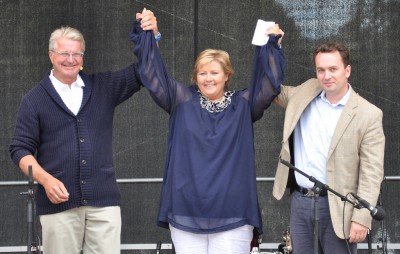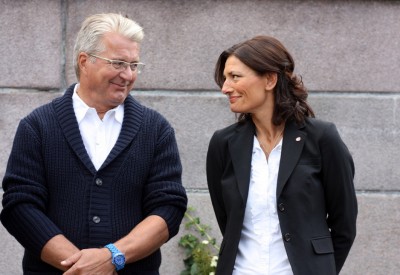Oslo is far from the only city in Norway facing conservative leadership over the next four years. While Oslo Mayor Fabian Stang hung on to his job following local elections, his Conservative Party (Høyre) also retained or won new power from Kristiansand in the south to Tromsø in the north.

City governments in Bergen and Stavanger will also continue to be run by conservative coalitions led by Høyre, which had, for example, secured 35.4 percent of the vote in Bergen by Tuesday morning, up nearly nine percentage points from the last local elections in 2007. In Stavanger, Høyre claimed 34.3 percent of the vote, down slightly from the last election but still enough to make it the largest party in the city known as Norway’s oil capital on the west coast.
Preliminary election results were the most dramatic in Oslo, where Høyre had gained fully 10.8 points according to figures as of late Tuesday morning. That gave Høyre 36.1 percent of the vote, beating out the Labour Party (Arbeiderpartiet) with 33.2 percent, even though Labour logged a relatively healthy gain as well. As in cities and counties around the country, much of Høyre’s gain was linked directly to major losses by the more conservative Progress Party (Fremskrittspartiet, Frp). In Oslo, the Progress Party fell more than seven points to land at just 7.2 percent of the vote, even less than the otherwise small and centrist Liberal Party (Venstre) and even though the Liberals actually lost some voters, too, falling 0.7 points since the election four years ago.

The losses suffered by the Progress Party in Oslo will cause challenges in forming a new city government (byrådet, also known as a city’s Municipal Executive Board in Norway). While the equivalent of a city council is called bystyret, and functions rather like the parliament does at the national level, the byråd forms the city’s political administrative leadership and it has, for the past several years, been made up of politicians from both the Conservatives and the Progress Party.
Now the Progress Party lacks the political clout it had, and the composition of the byråd will change. It’s likely to still be led by Stian Berger Røsland of the Conservatives, but he’ll have to gain cooperation from the Liberal Party (Venstre), which often has claimed it won’t rule with the Progress Party, even though all three parties are on the right side of the political spectrum.
Political negotiations were expected to take some time and there still may be some surprises. If the Liberals refuse to cooperate with the Conservatives and/or share power with the Progress Party, they could possibly form a centrist coalition with Labour, the Socialist Left, the Reds and even the tiny environmentally oriented party MDG to win a majority. That could leave the Conservatives winning the battle but losing the war, in a sense, since their election win doesn’t guarantee political rule, only the foundation for negotiations with other parties.
The Conservatives’ popular politician Fabian Stang, though, has already been declared as incumbent winner of the mayor’s seat in Oslo because he’s clearly the people’s choice and because the Conservatives won the most seats in the bystyret, which is led by the mayor. Labour’s mayoral candidate Rune Gerhardsen was hardly visible during the campaign and was even quoted as saying he’d vote for Stang if he wasn’t running himself. The Progress Party’s mayor candidate Carl I Hagen got into trouble early on by saying he still believed most terrorists were Muslims and that he thought the police were using too many resources on the investigation into the July 22 terrorist attacks by a right-wing Christian extremist. Hagen ended up dropping out of the mayor’s race last week but by then, the damage to his own party was done.
Meanwhile, there was some drama in a few other key cities in Norway. Labour’s stronghold in Trondheim seemed briefly threatened but the party won with around 40 percent of the vote and was reaching out to centrist parties for support in forming a government after the Conservatives made a strong showing. Labour lost Tromsø to the Conservatives, who gained a whopping 24.6 points to win 36.3 percent of the vote, compared to Labour’s 26.2 percent.
Labour, however, made a grand showing in Fredrikstad, where the party gained an impressive 16.4 points and won 49.2 percent of the vote. It now can take government power away from the Progress Party, which lost 17.2 points to win only 14 percent of the vote.
Views and News from Norway/Nina Berglund
Join our Readers’ Forum or comment below.
To support our news service, please click the “Donate” button now.

